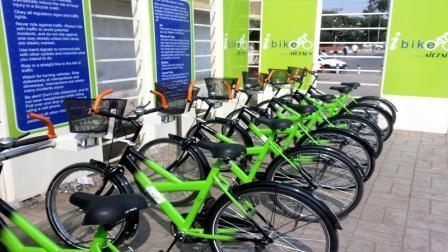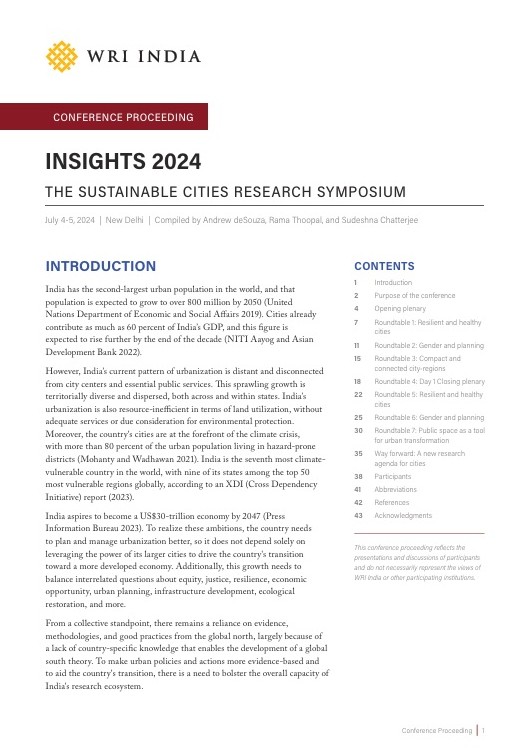Reviving Indore’s Bicycle Sharing System
by -
Cycling is one of the healthiest, most sustainable, and affordable modes of transport in Indian cities. It is also the most neglected. Since the launch of the Government of India’s Smart City Mission, there has been a renewed interest in non-motorised transport options. However, public bike-sharing systems have faced several issues. In Indore, for example, i-Bike, the city’s pilot bike-sharing initiative, has been prematurely discontinued.
If you consider the mobility patterns of the people of Indore, on an average, commuters travel a distance of about 5-6 km per trip. More than 40 percent use cycles. Atal Indore City Transport Services (AICTSL) launched i-Bike in 2015 to cater to existing cyclists, and to encourage more riders. The project was launched as a public-private partnership initiative, where the operator was to build and maintain the docking stations, purchase the cycles, and take care of the complete operations and revenue, while AICTSL would charge a nominal premium. However, in less than a year, the project had to be brought to a close. There were several reasons for this, the most significant being the lack of interest from the general public. In turn, this resulted in the cost of operations being more than the revenue generated.
There are several lessons to be learnt from this experience for Indore and other cities planning public bike-sharing systems. Old cities like Indore tend to have vibrant cycle rental systems that have existed since the early 1980s. In many larger cities, these shops have gradually disappeared. In Indore, however, the rental market continues to thrive with about 2000 bicycle rental stores with an average of 60 cycles per shop. The demand for these cycles is primarily from lower income groups such as daily wage labourers, factory workers, vendors, and visiting traders from nearby towns who need to navigate the inner city market areas.
According to a report by WRI India, a good way to ensure ridership is to integrate the existing cycle rental establishments with the new public bike-sharing system. By integrating the two, the existing shop owners would cease to see the new system as a threat. In this way, both systems could co-exist and benefit from each other.
There are steps that AICTSL can take in order to revive i-Bike. Firstly, they would need to create a map of the entire network of bicycle rental shops that could be used as stations and repair hubs, and form clusters of 15-20 shops based on location and proximity to major roads or public transport networks. These shops can be redesigned and branded to form one coherent, recognisable system. Secondly, introducing a unique numbering system for the bikes and the use of GPS technology will help with tracking and monitoring. Thirdly, a centralised database system will need to be developed for customer records. Lastly, a system of redistribution between shops or stations will need to be worked out based on usage patterns.
The impact of formalising cycle rental systems in Indore would be similar to the experience of TransMilenio in Bogota, Columbia, where informal bus services were aggregated into a formalised system with the advent of the BRT. If the existing set up in Indore is formalised by the integration of public bike-sharing systems, Indore has the potential to be one of the world’s largest public bike-sharing systems with more than 100,000 cycles.
Atharva is a cycling enthusiast and resident of Indore. He is pursuing an IB Diploma in Economics and Computers at The Doon School.


